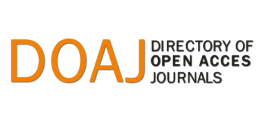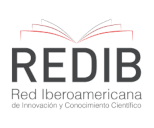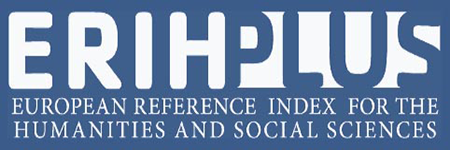No. 82 (2022): Transformation and management of health systems: research contributions for the generation of public value.

As coordinator of the Center for Health Systems and Social Security (CSS-SS) and of the Health Management Program of ICAP, and as part of this general responsibility, coordinator of the Master's Program in Health Management, it is a privilege for me to introduce with this editorial, the 82nd version of the Central American Journal of Public Administration.
This issue is specifically dedicated to topics related to public management of health and social security, from the publication of a set of articles that originate in the final graduation papers approved as part of the training process of a group of students, who today are already practicing as professionals with the degree of Magister Scientae in Health Management of ICAP.
As can be seen, the topics are framed along two main lines; the first is related to the improvement of health services management and the second is linked to the improvement of social protection in Costa Rica; however, all the topics covered are universal in nature, and therefore serve as relevant input for all the countries of the SICA region.
With regard to public health management, the starting point is the premise that management implies making decisions and, therefore, the challenge is to ensure that these decisions are correct and intelligent. To achieve this requires the application of rationality, the ability to think, evaluate, understand and act in accordance with certain principles of improvement and consistency, in order to satisfy some objective or purpose. Rationality is an innate virtue of human beings that allows them to discern in a given situation.
The applicable rationalities are those that consider relevant good decisions within organizations: i) political rationality that guides the institutional course, ii) technical rationality, related to the "content" of the institutional task, iii) administrative rationality linked to the necessary support required in terms of resources, methods and the institutional decision-making process, iv) legal rationality associated with the legal and juridical framework that conditions decision-making, and v) ethical rationality related to the values that support the decision-making process.
It is a matter of understanding how the decision-making process must harmonize the five aforementioned rationalities, never putting them in contradiction, a non-delegable and non-negotiable responsibility that the manager must assume when making decisions.
This concept of management then implies a symbiosis between leadership (direction) and administration; leadership has ethical implications in the function, that is, it is related to doing the right thing, for which it is necessary to know and apply essential management skills: creativity, innovation, leadership, motivation and negotiation, among others. On the other hand, administration implies the knowledge necessary to do it correctly, i.e., the ability to define standards and comply with the managerial functions of planning, organization, attracting and retaining suitable personnel, delegation, supervision, measurement and generation of useful information for decision-making.
It is in this context that three of the topics discussed in this issue of the Journal are related to issues related to good health services management. The first article by Diana Salas deals with the application of the Lean quality methodology to the operating rooms, in this case, of a national hospital of maximum complexity in Costa Rica, the San Juan de Dios Hospital. The methodology allows improving the quality of service, improving the use of resources, reducing waiting times to access the service and reducing costs. It is an example of the application to the public sector of a management tool that can be very useful for the benefit of the population.
The strategy proposed by Stephen Guinee of short-stay units for hospital services is very useful for improving the management of these services, optimizing the use of resources and reducing costs. The short-stay units contribute to the standardization of processes, which allows the reduction of hospital stay and the increase of the bed rotation that generates as a result, the improvement of the efficiency of the services, understanding that the bed is the hospital resource par excellence, since the planning of the establishment revolves around it.
On the other hand, the proposal for the classification of Health Areas made by Juan Carlos Obando, Alberth Méndez and Andrés Cairol, contributes significantly to the correct allocation of resources at the level of health service networks, taking as a reference criteria of population coverage, installed capacity, production, schedules of attention and, in general, complexity of the services for which they are responsible.
In view of these three topics related to good management, specifically, and in the context of the conceptual framework initially stated, to good health services administration, three articles are presented related to the improvement of social protection in Costa Rica, understanding that they contribute to define its course in terms of population needs and are useful for the SICA region in general.
The first of these is the analysis carried out by Angela Morales and Angie Parra to improve the process of granting pensions in the non-contributory system, which seeks not only to contribute to institutional efficiency, but also to the access of a socially disadvantaged population to a basic pension. The study demonstrates not only the weaknesses of the granting process but also the deficiency of some criteria for doing so, affecting the quality of life of many people. The authors make a proposal that comprehensively improves the whole process.
In addition, the feasibility study carried out by Kenny Rojas and Jorge Peñaranda to increase the coverage of genomic analysis in people with heredofamilial suspicion of breast and colorectal cancer raises one of the challenges of contemporary medicine and of the future: personalized attention based on the specific needs of individuals. In Costa Rica, during the year 2020, only 24% of the new cases suffering from this type of cancer with heredofamilial suspicion had access to analysis, due to the scarcity of existing resources.
Finally, Eugenia Mata and Horacio Chamizo present an article that links the correct approach to the problem of drug use in Costa Rica and the construction of public policy in this field, based on the premise that drug use is a public health problem and should be treated as such, a contribution of great value, not only for the country, but also for the SICA region.
Complementary to the articles originated in final graduation works, the journal presents two documents that deal with general topics linked to the social and economic reality of Costa Rica and the SICA region; Jean Paul Vargas ventures into the topic of parliament and institutional innovation, a document of conceptual and reflective character, which assumes as a task to venture into an approximation of the approaches to parliamentary modernization, seen from the importance of institutional change and induced balances. The paper begins the discussion by taking a conceptual position on Parliament as an institution, followed by an understanding of parliamentary governance and institutional capacity, whose cumulative reflection allows us to address the various approaches to parliamentary modernization.
Finally, Angel Abelino Ortega, ventures into the issue of poverty and extreme poverty in Costa Rica, presenting it as a historical debt of the country, despite the efforts made in the social field by various governments.
The author considers, without pretending to give a definitive answer, that the poverty situation could be directly related to the type of social policy promoted by the governments of the last 40 years, the obsolescence of the management of the social sector institutions, the impossibility of articulating a strategy respecting the work spaces of each institution and the short-termism of the planning processes, which is why a profound revision of the worked model is necessary and to make the pertinent adjustments in order to change what is necessary.
In summary, this issue of the Central American Journal of Public Administration is a significant contribution to public health management that takes the Costa Rican reality as a reference, but that undoubtedly contributes to the reality of all SICA countries.
Mauricio Vargas Fuentes
May, 2022.









